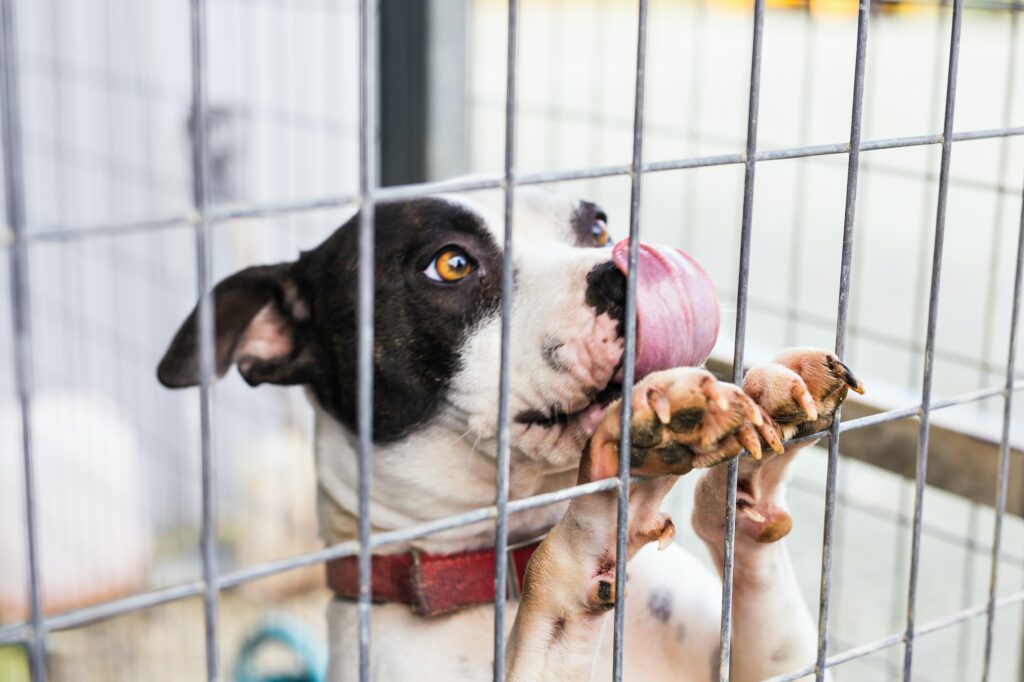With the number of homeless animals in shelters and on the streets increasing every year, pet abandonment is quickly becoming a major concern for animal lovers everywhere. It’s heartbreaking to think that so many pets are being neglected and discarded due to their owner’s inability or unwillingness to provide them with adequate care. But what most people may not realize is that this problem isn’t just limited to cats and dogs—other species of animals like rabbits, birds, rodents, reptiles, amphibians, and farm animals are also negatively impacted by pet abandonment. In this blog post, we’ll look at how pet abandonment affects our companion animals in both immediate and long-term ways—from poor health to shortened lifespans—and discuss some solutions on how we can all help prevent it from happening.
The Difference Between Pet Abandonment and Surrending A Pet

Before we dive into how abandonment impacts animals, we want to make the distinction between pet abandonment and surrendering a pet. People can decide that a pet is no longer suited to their lifestyle for many reasons. Sometimes people realize that they do not have enough time for their pets, so they decide to sell them, bring them to shelters, and in some cases, even abandon them.
Surrendering A Pet
Surrendering a pet is when an owner takes the responsibility of finding their pet a new home rather than discarding them. This can be done either through adoption or by taking the animal to a shelter. Adoption ensures that the pet can find a safe and loving environment in which to live, while surrendering to a shelter allows for veterinary care, socialization, and ultimately, finding the pet a new home.
Pet Abandonment
Pet abandonment is much more insidious. It happens when an owner abandons their pet in a public area, on the side of the road or even in an animal shelter without providing any details or contact information. This leaves animals vulnerable to predators, starvation and disease as well as denying them access to veterinary care they need.Reasons Behind Pet Abandonment
Reasons Behind Pet Abandonment
Pet abandonment is a complex issue with many factors at play, ranging from financial hardship to lack of education about responsible pet ownership. People who purchase pets without doing their research can find themselves overwhelmed by the responsibility and may feel they have few options other than abandoning them. In some cases owners may be unaware of resources such as low-cost spay/neuter programs or pet adoption centers that could help them take better care of their pet.
In other cases, owners may simply be unable to care for their pets due to life changes such as moving to a new home or having a baby. In these situations, it can be difficult for an animal to adjust, and owners may feel that there is no alternative but to abandon them. Many people also opt for pet abandonment when they don’t have the financial means to take care of their pet, which can result in putting the animal at risk for hunger, disease, and mistreatment.
Consequences of Pet Abandonment
The immediate impact of pet abandonment is obvious—poor health, shortened lifespans, and an increased risk of predators and disease. But the long-term effects can be even worse. Animals who were abandoned lose trust in humans, which makes it harder for them to be adopted into new homes. In some cases, abandoned animals are never found or taken in and eventually succumb to their environment.
It Has A Severe Impact on Shelters
One of the biggest consequences of pet abandonment is the financial burden placed upon governmental and non-governmental organizations that take care of them. Ever since the Covid-19 pandemic, the number of pets abandoned has only increased.

Many animal shelters and rescue organizations rely solely on donations to provide care for abandoned animals, as they do not receive government funds. Consequently, they frequently face financial difficulties. In some cases, when shelters have taken in as many animals as they can accommodate, they may, unfortunately, have to resort to euthanasia.
Pet Owners Experience Emotional Consequences
While it is animals that are bearing the brunt of pet abandonment, owners experience emotional consequences as well. People who have abandoned their pets may find themselves feeling guilty or ashamed for not being able to provide for their pets in a responsible manner.
Abandoned Animals Face A Stressful and Uncertain Future
The future for abandoned animals is uncertain and often filled with fear. They may have to endure extreme weather conditions, starvation or dehydration, predation from other animals and diseases that can lead to a slow death. While some pets end up in shelters or get adopted by individuals or authorities, many are not as fortunate and are forced to live on the streets. These abandoned animals have to take care of themselves and live in constant fear. If they are still young and not weaned, their chances of survival are even lower.
Stray animals often suffer from thirst, hunger, and exposure to extreme weather conditions. Without veterinary care, shelter, and food, they are at risk of becoming sick and dying. Furthermore, if dumped animals are not neutered, they will add to the already large population of stray animals, causing their offspring to be born into a life of hardship and constant struggle for survival.
Preventing Pet Abandonment
The best way to prevent pet abandonment is by educating people about responsible pet ownership and providing resources for those who need help caring for their animals. Spay/neuter programs can help cut down on the population of unwanted animals, while pet adoption centers can provide potential owners with safe and loving homes for the pets they are considering.
People should be aware that abandonment is never an acceptable option—it not only puts the pet in danger but also causes emotional distress to both the animal and its former owner. As such, we all have a responsibility to do our part in preventing pet abandonment. This could include spreading awareness, volunteering at shelters, or donating to animal welfare organizations.
Using our collective knowledge and resources, we can all work together to provide a better future for abandoned animals and reduce the number of pets that are neglected or discarded every day. By showing compassion to animals in need, we can create a more humane world with fewer unnecessary tragedies caused by pet abandonment.
